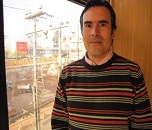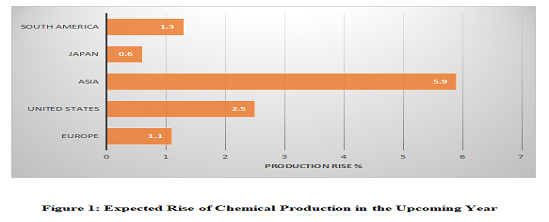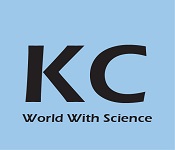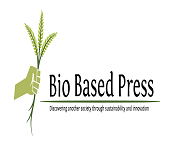Previous Speakers

Sukon Phanichphant
Chiang Mai University Thailand

Victor Kozlov
Novosibirsk State University, Russian Federation Russia

Zaw Ye Maw Oo
D. Mendeleev University of Chemical Technology of Russia Russia

Saeed Hajimirzaee
Manchester Metropolitan University, United Kingdom UK

Lu Qiu
Harbin Institute of Technology China

Carlos Zambra
University of Talca Chile

Tiefeng Xu
Zhejiang Sci-Tech University China

Faisal Al Marzouqi
Sultan Qaboos University Oman
Recommended Global Chemical Engineering Webinars & Conferences
Europe & UK
Asia Pacific & Middle East
Canada
Catalysis 2019
About Conference
Conference Series LLC Ltd pleased to welcome you to attend in 6th World Congress on Chemical Engineering and Catalysis during May 13-14, 2019 at Melbourne, Australia with a theme “Exploring latest trends in Chemical Engineering and Catalysis”
The following main themes of the conference have been discussed during presentations of the two day event, which reflect current education research, developments and innovations internationally and as evidenced in both Chemical Engineering and Catalysis.
- Teaching, Assessment and Learning in University and Industries
- Technology, Simulation and Education
- Continuing Professional Development
- Continuing Education
- Innovation, Academic Leadership and Evaluation Research Midwifery Education
Conference Series LLC Ltd through its Open Access Initiative is committed to make genuine and reliable contributions to the scientific community. This conference brings together individuals who have an interest in Chemical Engineering and Catalysis development and research
World Chemical Engineering and Catalysis Conference provides a several number of unexampled opportunities to guide your career. You can learn new passages to research , calibrate your intelligences and work with new technologies and gain ideas from experts at the forepart of EEE and Engineering.
Everyone who explores to develop their institution's and gain more about advanced technical cleverness is invited to register. We assure our attendees return to their place with a confidence to improve their skills and equipped with certified procedures to work with. Chemical Engineering and Catalysis is one of the cornerstones of the EEE and Engineering.
Sessions and Tracks
Track 1: Homogeneous catalysis, Molecular Catalysis
In chemistry, homogeneous catalysis will be catalysis in a solution by a solvent catalyst. Entirely, homogeneous catalysis alludes to catalytic reactions where the catalyst is in same stage from the reactants. Homogeneous catalysis applies to reactions in the gas stage and even in solids. Control over the local chemical environment condition of a particle can be accomplished by encapsulation in supramolecular host systems. In supramolecular catalysis, this control is utilized to gain preferences over established homogeneous catalysis in bulk arrangement. Two of the fundamental points concern impacting reactions as far as substrate and product selectivity. Because of size and additionally shape recognition, substrate selective transformation can be figured it out.
Related Conferences
2nd Global Catalysis, Chemical Engineering Conference, September 13-15, 2018, Roam, Italy; 4th International Chemical Engineering Conference, September 17-18, 2018 Vancouver, British Columbia, Canada; 5th International Advances in Chemical Engineering & Technology Conference, October 4-5, 2018 London, UK; 11th World Petrochemistry, Geology and Chemical Engineering Congress, November 09-10, 2018 Birmingham, Alabama, USA; 5th World Chemical Engineering and Catalysis Congress, August 28-30, 2018 Paris, France; World Petroleum Processing and Industrial Chemistry Congress, November 09-10, 2018 Birmingham, Alabama, USA; 12th International Scientific Bases for the Preparation of Heterogeneous Catalysts Symposium, July 8-12, 2018 Louvain-La-Neuve, Belgium; 7th EuCheMS Chemistry Congress, 26–30 August 2018 ACC Liverpool, UK; 2nd International Catalysis and Chemical Engineering, February 19-21, 2018 Paris, France; 10th International Environmental Catalysis Conference, September 23-27, 2018 Tianjin, China; 20th International Catalysis Conference, June 21 - 22, 2018 DUBAI, UAE .
Related societies and associations
Association of Chemical Engineers of Uruguay, Colombian Association of Chemical Engineering, Brazilian Association of Chemical Engineering, Argentinian Association for Chemical Engineers, Society of Chemical Engineers New Zealand, Australian Federation of Chemical Engineers, Mexican Institute of Chemical Engineers (IMIQ), National Organization for the Professional Advancement of Black Chemists and Chemical Engineers(NOBCChE), Canadian Society for Chemical Engineering(CSChE), Association of Energy Engineers (AEE).
Track 2: Heterogeneous Catalysis
A catalyst is another substance than reactants products added to a reaction system to alter the speed of a chemical reaction approaching a chemical equilibrium. It interacts with the reactants in a cyclic manner promoting perhaps many reactions at the atomic or molecular level, but it is not consumed. Another reason for using a catalyst is that it promote the production of a selected product. A catalyst that is in a separate phase from the reactants is said to be a heterogeneous, or contact, catalyst. Contact catalysts are materials with the capability of adsorbing molecules of gases or liquids onto their surfaces. An example of heterogeneous catalysis is the use of finely divided platinum to catalyze the reaction of carbon monoxide with oxygen to form carbon dioxide. This reaction is used in catalytic converters mounted in automobiles to eliminate carbon monoxide from the exhaust gases.
Related Conferences
2nd Global Catalysis, Chemical Engineering Conference, September 13-15, 2018, Roam, Italy; 4th International Chemical Engineering Conference, September 17-18, 2018 Vancouver, British Columbia, Canada; 5th International Advances in Chemical Engineering & Technology Conference, October 4-5, 2018 London, UK; 11th World Petrochemistry, Geology and Chemical Engineering Congress, November 09-10, 2018 Birmingham, Alabama, USA; 5th World Chemical Engineering and Catalysis Congress, August 28-30, 2018 Paris, France; World Petroleum Processing and Industrial Chemistry Congress, November 09-10, 2018 Birmingham, Alabama, USA; 12th International Scientific Bases for the Preparation of Heterogeneous Catalysts Symposium, July 8-12, 2018 Louvain-La-Neuve, Belgium; 7th EuCheMS Chemistry Congress, 26–30 August 2018 ACC Liverpool, UK; 2nd International Catalysis and Chemical Engineering, February 19-21, 2018 Paris, France; 10th International Environmental Catalysis Conference, September 23-27, 2018 Tianjin, China; 20th International Catalysis Conference, June 21 - 22, 2018 DUBAI, UAE.
Related societies and associations
European Federation of Chemical Engineering, Israel Institute of Chemical Engineers (IIChe), International Plasma Chemistry Society, European Petrochemical Association, Federation of European Biochemical Societies, Nigerian Society of Chemical Engineers, Danish Chemical Society, Colombian Association of Chemical Engineering Environmental and Energy Study Institute, Czech Society of Chemical Engineering, Indian Institute of Chemical Engineers (IIChe).
Track 3: Catalysis for Chemical Synthesis
This field of study amalgamate facet of organic, organometallic, and inorganic chemistry. Synthesis forms a considerable component of most programs in this area. Mechanistic scrutiny are often undertaken to discover how an unexpected product is formed or to rearrange the recital of a catalytic system. Because synthesis and catalysis are essential, to the construction of new materials, Catalysts are progressively used by chemists busy in fine chemical synthesis within both industry and academia. Today, there prevail huge choices of high-tech catalysts, which add enormously to the repertoire of synthetic possibilities. However, catalysts are intermittently fickle, sometimes grueling to use and almost always require both skill and experience in order to achieve optimal results.
Related Conferences
2nd Global Catalysis, Chemical Engineering Conference, September 13-15, 2018, Roam, Italy; 4th International Chemical Engineering Conference, September 17-18, 2018 Vancouver, British Columbia, Canada; 5th International Advances in Chemical Engineering & Technology Conference, October 4-5, 2018 London, UK; 11th World Petrochemistry, Geology and Chemical Engineering Congress, November 09-10, 2018 Birmingham, Alabama, USA; 5th World Chemical Engineering and Catalysis Congress, August 28-30, 2018 Paris, France; World Petroleum Processing and Industrial Chemistry Congress, November 09-10, 2018 Birmingham, Alabama, USA; 12th International Scientific Bases for the Preparation of Heterogeneous Catalysts Symposium, July 8-12, 2018 Louvain-La-Neuve, Belgium; 7th EuCheMS Chemistry Congress, 26–30 August 2018 ACC Liverpool, UK; 2nd International Catalysis and Chemical Engineering, February 19-21, 2018 Paris, France; 10th International Environmental Catalysis Conference, September 23-27, 2018 Tianjin, China; 20th International Catalysis Conference, June 21 - 22, 2018 DUBAI, UAE.
Related societies and associations
American Institute of Chemical Engineers (AIChE), American Chemical Society (ACS), Société Française de Génie des Procédés (SFGP), Institution of Chemical Engineers (IChemE), Associazione Italiana Di Ingegneria Chimica (AIDIC), European Federation of Chemical Engineering (EFCE), Society of Chemical Engineers of Nepal, Society of Chemical Engineers Japan (SCEJ), Nigerian Society of Chemical Engineers (SAIChE), Ethiopian Society of Chemical Engineers (ESChE).
Track 4: Chemical Engineering
Chemical Engineering Conference 2018 addresses the physical science application (e.g., chemistry and physics), and life sciences with mathematics and economics, the process of changing raw materials or chemicals into more useful or valuable forms. In addition to develop useful materials, modern chemical engineering is also concerned with pioneering valuable new materials and new methods such as nanotechnology, fuel cells and biomedical engineering. The global chemical industry and market analysis, estimated at U.S. $2.4 trillion, is one of the fastest growing business sectors of the manufacturing industry. It also shipped 3.4 billion dollars’ worth of chemicals globally across regions in 2009.
Related Conferences
2nd Global Catalysis, Chemical Engineering Conference, September 13-15, 2018, Roam, Italy; 4th International Chemical Engineering Conference, September 17-18, 2018 Vancouver, British Columbia, Canada; 5th International Advances in Chemical Engineering & Technology Conference, October 4-5, 2018 London, UK; 11th World Petrochemistry, Geology and Chemical Engineering Congress, November 09-10, 2018 Birmingham, Alabama, USA; 5th World Chemical Engineering and Catalysis Congress, August 28-30, 2018 Paris, France; World Petroleum Processing and Industrial Chemistry Congress, November 09-10, 2018 Birmingham, Alabama, USA; 12th International Scientific Bases for the Preparation of Heterogeneous Catalysts Symposium, July 8-12, 2018 Louvain-La-Neuve, Belgium; 7th EuCheMS Chemistry Congress, 26–30 August 2018 ACC Liverpool, UK; 2nd International Catalysis and Chemical Engineering, February 19-21, 2018 Paris, France; 10th International Environmental Catalysis Conference, September 23-27, 2018 Tianjin, China; 20th International Catalysis Conference, June 21 - 22, 2018 DUBAI, UAE.
Related societies and associations
Association of Chemical Engineers of Uruguay, Colombian Association of Chemical Engineering, Brazilian Association of Chemical Engineering, Argentinian Association for Chemical Engineers, Society of Chemical Engineers New Zealand, The Australian and New Zealand Federation of Chemical Engineers (ANZFChE), Mexican Institute of Chemical Engineers (IMIQ), National Organization for the Professional Advancement of Black Chemists and Chemical Engineers (NOBCChE), Canadian Society for Chemical Engineering (CSChE), Association of Energy Engineers (AEE).
Track 5: Environmental Catalysis and Green Chemistry
Environmental chemistry is the logical investigation of the synthetic and biochemical phenomena that happen in natural places. It can be characterized as the investigation of the sources, responses, transport, impacts, and fates of chemical species noticeable all around, soil, and water conditions; and the impact of human action and natural action on these. Environmental chemistry is an interdisciplinary science that incorporates atmospheric, aquatic and soil chemistry, and in addition intensely depending on logical science and being identified with ecological and different territories of science. Environmental chemistry is the investigation of synthetic procedures happening in the earth which are affected by mankind's exercises. Green chemistry, likewise called sustainable chemistry, is a territory of chemistry and chemical engineering concentrated on the outlining of items and procedures that limit the utilization and age of risky substances. Environmental chemistry centers around the impacts of polluting chemicals on nature, green chemistry centers around mechanical ways to deal with preventing pollution and decreasing utilization of nonrenewable assets.
Related Conferences
2nd Global Catalysis, Chemical Engineering Conference, September 13-15, 2018, Roam, Italy; 4th International Chemical Engineering Conference, September 17-18, 2018 Vancouver, British Columbia, Canada; 5th International Advances in Chemical Engineering & Technology Conference, October 4-5, 2018 London, UK; 11th World Petrochemistry, Geology and Chemical Engineering Congress, November 09-10, 2018 Birmingham, Alabama, USA; 5th World Chemical Engineering and Catalysis Congress, August 28-30, 2018 Paris, France; World Petroleum Processing and Industrial Chemistry Congress, November 09-10, 2018 Birmingham, Alabama, USA; 12th International Scientific Bases for the Preparation of Heterogeneous Catalysts Symposium, July 8-12, 2018 Louvain-La-Neuve, Belgium; 7th EuCheMS Chemistry Congress, 26–30 August 2018 ACC Liverpool, UK; 2nd International Catalysis and Chemical Engineering, February 19-21, 2018 Paris, France; 10th International Environmental Catalysis Conference, September 23-27, 2018 Tianjin, China; 20th International Catalysis Conference, June 21 - 22, 2018 DUBAI, UAE.
Related Societies and Associations
Society of Chemical Engineers of Nepal, Society of Chemical Engineers Japan (SCEJ), Danish Chemical Society, Colombian Association of Chemical Engineering Environmental and Energy Study Institute, Society of Chemical Engineers New Zealand, The Australian and New Zealand Federation of Chemical Engineers (ANZFChE), Mexican Institute of Chemical Engineers (IMIQ), Ethiopian Society of Chemical Engineers (ESChE), Canadian Society for Chemical Technology, Chinese-American Chemical Society China.
Track 6: Organometallics Chemistry
Organometallic chemistry explores the chemistry of the often be wildering variety of compounds featuring metal-carbon bonds. A field that has underpinned the development of new synthetic methods and materials, it is also central to our understanding of catalysis. Organometallic compounds are widely used both stoichiometrically in research and industrial chemical reactions. The novel metal free catalysts are called organocatalysts, for the synthesis of industrially relevant products with CO2 as a C1-building block. Combining those catalysts with metal-catalyzed or enzyme-catalyzed procedures in (sequential) one pot reactions leads to innovative and sustainable catalytic systems with high selectivity and energy efficiency respectively. These alternative methods, taking steps in the upstream and downstream phases, are targeted at changing and extending the raw material base, utilizing CO2.
Related Conferences
2nd Global Catalysis, Chemical Engineering Conference, September 13-15, 2018, Roam, Italy; 4th International Chemical Engineering Conference, September 17-18, 2018 Vancouver, British Columbia, Canada; 5th International Advances in Chemical Engineering & Technology Conference, October 4-5, 2018 London, UK; 11th World Petrochemistry, Geology and Chemical Engineering Congress, November 09-10, 2018 Birmingham, Alabama, USA; 5th World Chemical Engineering and Catalysis Congress, August 28-30, 2018 Paris, France; World Petroleum Processing and Industrial Chemistry Congress, November 09-10, 2018 Birmingham, Alabama, USA; 12th International Scientific Bases for the Preparation of Heterogeneous Catalysts Symposium, July 8-12, 2018 Louvain-La-Neuve, Belgium; 7th EuCheMS Chemistry Congress, 26–30 August 2018 ACC Liverpool, UK; 2nd International Catalysis and Chemical Engineering, February 19-21, 2018 Paris, France; 10th International Environmental Catalysis Conference, September 23-27, 2018 Tianjin, China; 20th International Catalysis Conference, June 21 - 22, 2018 DUBAI, UAE.
Related Societies and Associations
European Federation of Chemical Engineering (EFCE), Society of Chemical Engineers New Zealand, Belgian Society of Biochemistry Belgium, Korean Chemical Society, American Solar Energy Society (ASES), Association of Chemical Engineers of Uruguay, Colombian Association of Chemical Engineering, American Chemical Society (ACS), Colombian Association of Chemical Engineering Environmental and Energy Study Institute, Chinese-American Chemical Society China.
Track 7: Catalysis and Pyrolysis
Reorganization of a compound into smaller and simpler compounds, or compounds of lofty molecular weight, under elevated temperatures usually in the range of 400°C to 800°C to as high as 1400°C. It differs from combustion in that it occurs in the absence of air and therefore no oxidation takes place. The pyrolytic disintegration of wood forms a large number of chemical substances. Some of these chemicals can be used as substitutes for conventional fuels. The dispersal of the products varies with the chemical composition of the biomass and the operating conditions.
- Fast Pyrolysis
- Hydrotreating to Stable Oil
- Hydrocracking
- Hydrogen Production
Related Conferences
2nd Global Catalysis, Chemical Engineering Conference, September 13-15, 2018, Roam, Italy; 4th International Chemical Engineering Conference, September 17-18, 2018 Vancouver, British Columbia, Canada; 5th International Advances in Chemical Engineering & Technology Conference, October 4-5, 2018 London, UK; 11th World Petrochemistry, Geology and Chemical Engineering Congress, November 09-10, 2018 Birmingham, Alabama, USA; 5th World Chemical Engineering and Catalysis Congress, August 28-30, 2018 Paris, France; World Petroleum Processing and Industrial Chemistry Congress, November 09-10, 2018 Birmingham, Alabama, USA; 12th International Scientific Bases for the Preparation of Heterogeneous Catalysts Symposium, July 8-12, 2018 Louvain-La-Neuve, Belgium; 7th EuCheMS Chemistry Congress, 26–30 August 2018 ACC Liverpool, UK; 2nd International Catalysis and Chemical Engineering, February 19-21, 2018 Paris, France; 10th International Environmental Catalysis Conference, September 23-27, 2018 Tianjin, China; 20th International Catalysis Conference, June 21 - 22, 2018 DUBAI, UAE.
Related Societies and Associations
American Chemical Society (ACS), Société Française de Génie des Procédés (SFGP), Institution of Chemical Engineers (IChemE), European Federation of Chemical Engineering, Israel Institute of Chemical Engineers (IIChe), The Australian and New Zealand Federation of Chemical Engineers (ANZFChE), Mexican Institute of Chemical Engineers (IMIQ), Norwegian Chemical Society, Belgian Society of Biochemistry Belgium, Society of Chemical Engineers New Zealand.
Track 8: Catalysis and Zeolites
Zeolites are the most important heterogeneous catalysts with numerous large-scale applications including cracking, petrochemistry, fine chemical synthesis, and environmental protection. This themed issue evidences the significant impact of zeolites in catalysis, new trends in catalytic applications of zeolites and, in particular, their potential in catalysis. Zeolitesis used as catalysts in petrochemical industries for cracking of hydrocarbons and isomerization. An important zeolite catalyst used in the petroleum industry is ZSM-5. It converts alcohols directly into gasoline (petrol) by dehydrating them to give a mixture of hydrocarbons. Electron microscopic investigations of zeolites are reviewed. Scanning electron microscopy can show the appearance of zeolite crystals, e.g. their sizes and morphologies, and can also be used to look into the cores of crystals, revealing any abnormal microstructures, which often help us to elucidate actual crystal growth mechanisms. High resolution transmission electron microscopy is a powerful tool to directly image many pore systems and local defects in zeolites.
Related Conferences
2nd Global Catalysis, Chemical Engineering Conference, September 13-15, 2018, Roam, Italy; 4th International Chemical Engineering Conference, September 17-18, 2018 Vancouver, British Columbia, Canada; 5th International Advances in Chemical Engineering & Technology Conference, October 4-5, 2018 London, UK; 11th World Petrochemistry, Geology and Chemical Engineering Congress, November 09-10, 2018 Birmingham, Alabama, USA; 5th World Chemical Engineering and Catalysis Congress, August 28-30, 2018 Paris, France; World Petroleum Processing and Industrial Chemistry Congress, November 09-10, 2018 Birmingham, Alabama, USA; 12th International Scientific Bases for the Preparation of Heterogeneous Catalysts Symposium, July 8-12, 2018 Louvain-La-Neuve, Belgium; 7th EuCheMS Chemistry Congress, 26–30 August 2018 ACC Liverpool, UK; 2nd International Catalysis and Chemical Engineering, February 19-21, 2018 Paris, France; 10th International Environmental Catalysis Conference, September 23-27, 2018 Tianjin, China; 20th International Catalysis Conference, June 21 - 22, 2018 DUBAI, UAE.
Related Societies and Associations
Society of Chemical Engineers New Zealand, Belgian Society of Biochemistry Belgium, American Chemical Society (ACS), Société Française de Génie des Procédés (SFGP), Ethiopian Society of Chemical Engineers (ESChE), Korean Chemical Society, American Solar Energy Society (ASES), Indian Institute of Chemical Engineers (IIChe), Chinese-American Chemical Society China, Czech Society of Chemical Engineering.
Track 9: Industrial Catalysis
In the chemical industry and industrial research, catalysis assume an essential part. Distinctive catalysts are in consistent advancement to satisfy financial, political and natural requests. When utilizing catalyst, it is conceivable to replace a contaminating chemical reaction with an all the more environmentally friendly alternative. Today, and in future, this can be crucial for the chemical industry. For an organization, a new and improved catalyst can be an enormous preferred standpoint for a competitive assembling cost. It's amazingly costly for an organization to shut down the plant because of a blunder in the catalyst, so the right choice of a catalyst or another change can be critical to industrial achievement.
Related Conferences
2nd Global Catalysis, Chemical Engineering Conference, September 13-15, 2018, Roam, Italy; 4th International Chemical Engineering Conference, September 17-18, 2018 Vancouver, British Columbia, Canada; 5th International Advances in Chemical Engineering & Technology Conference, October 4-5, 2018 London, UK; 11th World Petrochemistry, Geology and Chemical Engineering Congress, November 09-10, 2018 Birmingham, Alabama, USA; 5th World Chemical Engineering and Catalysis Congress, August 28-30, 2018 Paris, France; World Petroleum Processing and Industrial Chemistry Congress, November 09-10, 2018 Birmingham, Alabama, USA; 12th International Scientific Bases for the Preparation of Heterogeneous Catalysts Symposium, July 8-12, 2018 Louvain-La-Neuve, Belgium; 7th EuCheMS Chemistry Congress, 26–30 August 2018 ACC Liverpool, UK; 2nd International Catalysis and Chemical Engineering, February 19-21, 2018 Paris, France; 10th International Environmental Catalysis Conference, September 23-27, 2018 Tianjin, China; 20th International Catalysis Conference, June 21 - 22, 2018 DUBAI, UAE.
Related Societies and Associations
Colombian Association of Chemical Engineering Environmental and Energy Study Institute, Czech Society of Chemical Engineering, New Zealand Federation of Chemical Engineers (ANZFChE), Mexican Institute of Chemical Engineers (IMIQ), Société Française de Génie des Procédés (SFGP), Institution of Chemical Engineers (IChemE), American Solar Energy Society (ASES), Association of Chemical Engineers of Uruguay, Society of Chemical Engineers New Zealand, The Australian and New Zealand Federation of Chemical Engineers (ANZFChE).
Track 10: Catalysis and Applications
Catalysts are substances which, when added to a response, increment the rate of reaction by furnishing other response pathway with a lower activation energy(Ea). They do this by advancing legitimate introduction between responding particles. In natural chemistry, catalysts are known as chemicals. Catalysis impacts the earth by expanding the proficiency of mechanical procedures, however catalysis additionally assumes an immediate part in nature. There is reactant part of chlorine free radicals in the breakdown of ozone. These radicals are framed by the activity of bright radiation on chlorofluorocarbons (CFCs). A standout amongst the most clear uses of catalysis is the hydrogenation (response with hydrogen gas) of fats utilizing nickel catalyst to create margarine. Numerous different foodstuffs are prepared through bio catalysis.
Related Conferences
2nd Global Catalysis, Chemical Engineering Conference, September 13-15, 2018, Roam, Italy; 4th International Chemical Engineering Conference, September 17-18, 2018 Vancouver, British Columbia, Canada; 5th International Advances in Chemical Engineering & Technology Conference, October 4-5, 2018 London, UK; 11th World Petrochemistry, Geology and Chemical Engineering Congress, November 09-10, 2018 Birmingham, Alabama, USA; 5th World Chemical Engineering and Catalysis Congress, August 28-30, 2018 Paris, France; World Petroleum Processing and Industrial Chemistry Congress, November 09-10, 2018 Birmingham, Alabama, USA; 12th International Scientific Bases for the Preparation of Heterogeneous Catalysts Symposium, July 8-12, 2018 Louvain-La-Neuve, Belgium; 7th EuCheMS Chemistry Congress, 26–30 August 2018 ACC Liverpool, UK; 2nd International Catalysis and Chemical Engineering, February 19-21, 2018 Paris, France; 10th International Environmental Catalysis Conference, September 23-27, 2018 Tianjin, China; 20th International Catalysis Conference, June 21 - 22, 2018 DUBAI, UAE.
Related Societies and Associations
Korean Chemical Society, American Solar Energy Society (ASES), Canadian Society for Chemical Technology, Czech Society of Chemical Engineering, American Chemical Society (ACS), Société Française de Génie des Procédés (SFGP), Society of Chemical Engineers New Zealand, Belgian Society of Biochemistry Belgium, New Zealand Federation of Chemical Engineers (ANZFChE), Mexican Institute of Chemical Engineers (IMIQ).
Track 11: Photoelectrochemistry, Photocatalysis and Photoreactors
The electron-opening pair formation that happens at the interface between a semiconductor and an endless supply of light prompts oxidation or reduction reactions of solution species. The standards of such photo driven processes are depicted and in addition uses of semiconductors in electrochemical cells and as particulate frameworks for doing heterogeneous photocatalysis and photoelectrosynthesis. photocatalysis is a reaction which utilizes light to activate a substance which adjusts the rate of a chemical reaction without being involved itself. The photocatalyst is the substance which can adjust the rate of chemical reaction utilizing light illumination. new photoreactor that should discover wide use in organic synthesis. It has higher- power LEDs than most homebrew setups, and the reaction chamber is streamlined for exposure, so in numerous reactions it prompts shorter circumstances and higher yields.
Related Conferences
2nd Global Catalysis, Chemical Engineering Conference, September 13-15, 2018, Roam, Italy; 4th International Chemical Engineering Conference, September 17-18, 2018 Vancouver, British Columbia, Canada; 5th International Advances in Chemical Engineering & Technology Conference, October 4-5, 2018 London, UK; 11th World Petrochemistry, Geology and Chemical Engineering Congress, November 09-10, 2018 Birmingham, Alabama, USA; 5th World Chemical Engineering and Catalysis Congress, August 28-30, 2018 Paris, France; World Petroleum Processing and Industrial Chemistry Congress, November 09-10, 2018 Birmingham, Alabama, USA; 12th International Scientific Bases for the Preparation of Heterogeneous Catalysts Symposium, July 8-12, 2018 Louvain-La-Neuve, Belgium; 7th EuCheMS Chemistry Congress, 26–30 August 2018 ACC Liverpool, UK; 2nd International Catalysis and Chemical Engineering, February 19-21, 2018 Paris, France; 10th International Environmental Catalysis Conference, September 23-27, 2018 Tianjin, China; 20th International Catalysis Conference, June 21 - 22, 2018 DUBAI, UAE.
Related Societies and Associations
Australian and New Zealand Federation of Chemical Engineers (ANZFChE), Mexican Institute of Chemical Engineers (IMIQ), Society of Chemical Engineers New Zealand, Belgian Society of Biochemistry Belgium, European Federation of Chemical Engineering (EFCE), Society of Chemical Engineers New Zealand, Society of Chemical Engineers Japan (SCEJ), Danish Chemical Society, Colombian Association of Chemical Engineering Environmental and Energy Study Institute, Chinese-American Chemical Society China.
Track 12: Polymer engineering
Polymer engineering is generally an engineering field that designs, analyses, or modifies polymer materials. Polymer engineering covers aspects of the petrochemical industry, polymerization, structure and characterization of polymers, properties of polymers, compounding and processing of polymers and description of major polymers, structure property relations and applications.
Related Conferences
2nd Global Catalysis, Chemical Engineering Conference, September 13-15, 2018, Roam, Italy; 4th International Chemical Engineering Conference, September 17-18, 2018 Vancouver, British Columbia, Canada; 5th International Advances in Chemical Engineering & Technology Conference, October 4-5, 2018 London, UK; 11th World Petrochemistry, Geology and Chemical Engineering Congress, November 09-10, 2018 Birmingham, Alabama, USA; 5th World Chemical Engineering and Catalysis Congress, August 28-30, 2018 Paris, France; World Petroleum Processing and Industrial Chemistry Congress, November 09-10, 2018 Birmingham, Alabama, USA; 12th International Scientific Bases for the Preparation of Heterogeneous Catalysts Symposium, July 8-12, 2018 Louvain-La-Neuve, Belgium; 7th EuCheMS Chemistry Congress, 26–30 August 2018 ACC Liverpool, UK; 2nd International Catalysis and Chemical Engineering, February 19-21, 2018 Paris, France; 10th International Environmental Catalysis Conference, September 23-27, 2018 Tianjin, China; 20th International Catalysis Conference, June 21 - 22, 2018 DUBAI, UAE.
Related Societies and Associations
Society of Chemical Engineers New Zealand, Society of Chemical Engineers Japan (SCEJ), Korean Chemical Society, American Solar Energy Society (ASES), The Australian and New Zealand Federation of Chemical Engineers (ANZFChE), American Chemical Society (ACS), Société Française de Génie des Procédés (SFGP), Society of Chemical Engineers New Zealand, Chinese-American Chemical Society China, Society of Chemical Engineers New Zealand.
Track 13: Chemical Kinetics and Reaction Engineering
In the field of chemical industry and industrial research, catalysis plays an imperative role. Different catalysts are in continual progress to attain economic, political and environmental desire. When using a catalyst it can swap a polluting chemical reaction with a more environmentally friendly alternative. Today, and in the future, this can be vital for the chemical industry. In addition, it’s important for a company/researcher to pay attention to market development. Some of the large chemical processes that use catalysis today are the production of methanol and ammonia
- Industrial chemistry
- Fluid mechanics and interfacial phenomena
- Mass transfer and separations
- Nano scale science and engineering
- Bio chemical and biomolecular engineering
- Product and process systems engineering
- Towards computational catalyst design
Related Conferences
2nd Global Catalysis, Chemical Engineering Conference, September 13-15, 2018, Roam, Italy; 4th International Chemical Engineering Conference, September 17-18, 2018 Vancouver, British Columbia, Canada; 5th International Advances in Chemical Engineering & Technology Conference, October 4-5, 2018 London, UK; 11th World Petrochemistry, Geology and Chemical Engineering Congress, November 09-10, 2018 Birmingham, Alabama, USA; 5th World Chemical Engineering and Catalysis Congress, August 28-30, 2018 Paris, France; World Petroleum Processing and Industrial Chemistry Congress, November 09-10, 2018 Birmingham, Alabama, USA; 12th International Scientific Bases for the Preparation of Heterogeneous Catalysts Symposium, July 8-12, 2018 Louvain-La-Neuve, Belgium; 7th EuCheMS Chemistry Congress, 26–30 August 2018 ACC Liverpool, UK; 2nd International Catalysis and Chemical Engineering, February 19-21, 2018 Paris, France; 10th International Environmental Catalysis Conference, September 23-27, 2018 Tianjin, China; 20th International Catalysis Conference, June 21 - 22, 2018 DUBAI, UAE.
Related Societies and Associations
Association of Chemical Engineers of Uruguay, Colombian Association of Chemical Engineering, American Chemical Society (ACS), Colombian Association of Chemical Engineering Environmental and Energy Study Institute, Chinese-American Chemical Society China, Danish Chemical Society, Société Française de Génie des Procédés (SFGP), Society of Chemical Engineers New Zealand, Belgian Society of Biochemistry Belgium, Ethiopian Society of Chemical Engineers (ESChE).
Track 14: Petrochemistry
Petrochemical engineering is a branch of Chemical Engineering which deals with operations involved in refining petroleum or crude oil by the use of advanced technology. The course also includes extraction of crude petroleum obtained from the core of earth. Students learn about the mechanism and techniques involved in activities like exploration, production and exploitation of oil or natural gases. After the completion of undergraduate and postgraduate programmes in petroleum engineering, students can work in job profiles like petroleum geologists, drilling engineers, reservoir engineers and production engineers. Petroleum engineering is the field of engineering science that involves locating and accessing reserves of natural gas. The course includes subjects like Reaction Engineering, Heat Transfer, Mass Transfer, Fluid Dynamics, Thermodynamics, Transport Phenomena are bridged with special subjects like Petrochemical Processes, Refinery operations with due weight-age on Numerical Computation Process Control, Modelling & Simulation.
Related Conferences
2nd Global Catalysis, Chemical Engineering Conference, September 13-15, 2018, Roam, Italy; 4th International Chemical Engineering Conference, September 17-18, 2018 Vancouver, British Columbia, Canada; 5th International Advances in Chemical Engineering & Technology Conference, October 4-5, 2018 London, UK; 11th World Petrochemistry, Geology and Chemical Engineering Congress, November 09-10, 2018 Birmingham, Alabama, USA; 5th World Chemical Engineering and Catalysis Congress, August 28-30, 2018 Paris, France; World Petroleum Processing and Industrial Chemistry Congress, November 09-10, 2018 Birmingham, Alabama, USA; 12th International Scientific Bases for the Preparation of Heterogeneous Catalysts Symposium, July 8-12, 2018 Louvain-La-Neuve, Belgium; 7th EuCheMS Chemistry Congress, 26–30 August 2018 ACC Liverpool, UK; 2nd International Catalysis and Chemical Engineering, February 19-21, 2018 Paris, France; 10th International Environmental Catalysis Conference, September 23-27, 2018 Tianjin, China; 20th International Catalysis Conference, June 21 - 22, 2018 DUBAI, UAE.
Related Societies and Associations
Korean Chemical Society, American Solar Energy Society (ASES), Canadian Society for Chemical Technology, Chinese-American Chemical Society China, European Federation of Chemical Engineering, Israel Institute of Chemical Engineers (IIChe), International Plasma Chemistry Society, European Petrochemical Association, Federation of European Biochemical Societies, Nigerian Society of Chemical Engineers.
Track 15: Catalysis in Oil and gas
The catalysts we've created contain silicon (or germanium) and metal (copper, iron, cobalt, etc.). They are able to easily break the bonds between carbon and hydrogen atoms both in saturated and unsaturated hydrocarbons (the main components of oil and gas) and turn them into valuable products: alcohols, acids, and ethers. This is a topical subject – some works on the activation of carbon-hydrogen bonds were shortlisted for the 2017 Nobel Prize in Chemistry, says Alexey Bilyachenko, one of the co-authors of the workCatalytical experiments presented in this work show that a pentanuclear copper-containing compound is effective in homogeneous catalyst of the oxidation of secondary alcohol (to ketones) and alkanes (to alkylhydroperoxides) with the use of peroxides. Notably, these reactions take place in mild conditions, that is, after minor heating and without increased pressure. The discovered methods of oil and gas processing by means of hydrocarbons activation with metal-containing compounds have an obvious advantage over the usual cracking and pyrolysis technologies that required expensive temperature- and pressure-resistant equipment.
Related Conferences
2nd Global Catalysis, Chemical Engineering Conference, September 13-15, 2018, Roam, Italy; 4th International Chemical Engineering Conference, September 17-18, 2018 Vancouver, British Columbia, Canada; 5th International Advances in Chemical Engineering & Technology Conference, October 4-5, 2018 London, UK; 11th World Petrochemistry, Geology and Chemical Engineering Congress, November 09-10, 2018 Birmingham, Alabama, USA; 5th World Chemical Engineering and Catalysis Congress, August 28-30, 2018 Paris, France; World Petroleum Processing and Industrial Chemistry Congress, November 09-10, 2018 Birmingham, Alabama, USA; 12th International Scientific Bases for the Preparation of Heterogeneous Catalysts Symposium, July 8-12, 2018 Louvain-La-Neuve, Belgium; 7th EuCheMS Chemistry Congress, 26–30 August 2018 ACC Liverpool, UK; 2nd International Catalysis and Chemical Engineering, February 19-21, 2018 Paris, France; 10th International Environmental Catalysis Conference, September 23-27, 2018 Tianjin, China; 20th International Catalysis Conference, June 21 - 22, 2018 DUBAI, UAE.
Related Societies and Associations
Society of Chemical Engineers Japan (SCEJ), Nigerian Society of Chemical Engineers, Danish Chemical Society, Colombian Association of Chemical Engineering Environmental and Energy Study Institute, Nigerian Society of Chemical Engineers (SAIChE), Ethiopian Society of Chemical Engineers (ESChE), European Federation of Chemical Engineering (EFCE), Society of Chemical Engineers of Nepal, Society of Chemical Engineers.
Track 16: Nanochemistry
Nanotechnology and Nanoscience include the capacity to see and to control individual particles and atoms. Everything on Earth is comprised of atoms—the food we eat, the garments we wear, the buildings and houses we live in, and our own bodies. Catalysts, heterogeneous, homogeneous and chemical, are generally nanoparticles. Enthusiasm for nanoscience and in nanotechnology as of late centered consideration around the chance to create catalysts that display 100% selectivity for required item, hence removing byproducts and wiping out waste. Regenerative nanomedicine is one of the medical applications of nanotechnology. It ranges from the medical applications of nanomaterials to Nanoelectronics biosensors, and the future uses of sub-atomic nanotechnology, for example, natural machines. Nanomedicine deals came to $16 billion out of 2015, with at least $3.8 billion in nanotechnology R&D being contributed each year.
Related Conferences
2nd Global Catalysis, Chemical Engineering Conference, September 13-15, 2018, Roam, Italy; 4th International Chemical Engineering Conference, September 17-18, 2018 Vancouver, British Columbia, Canada; 5th International Advances in Chemical Engineering & Technology Conference, October 4-5, 2018 London, UK; 11th World Petrochemistry, Geology and Chemical Engineering Congress, November 09-10, 2018 Birmingham, Alabama, USA; 5th World Chemical Engineering and Catalysis Congress, August 28-30, 2018 Paris, France; World Petroleum Processing and Industrial Chemistry Congress, November 09-10, 2018 Birmingham, Alabama, USA; 12th International Scientific Bases for the Preparation of Heterogeneous Catalysts Symposium, July 8-12, 2018 Louvain-La-Neuve, Belgium; 7th EuCheMS Chemistry Congress, 26–30 August 2018 ACC Liverpool, UK; 2nd International Catalysis and Chemical Engineering, February 19-21, 2018 Paris, France; 10th International Environmental Catalysis Conference, September 23-27, 2018 Tianjin, China; 20th International Catalysis Conference, June 21 - 22, 2018 DUBAI, UAE.
Related Societies and Associations
Ethiopian Society of Chemical Engineers (ESChE), European Federation of Chemical Engineering (EFCE), European Federation of Chemical Engineering, Israel Institute of Chemical Engineers (IIChe), Société Française de Génie des Procédés (SFGP), Society of Chemical Engineers New Zealand, Chinese-American Chemical Society China, International Plasma Chemistry Society, European Petrochemical Association, Federation of European Biochemical Societies.
Track 17: Spectroscopy in Catalysis
Building up vibrational spectroscopy in catalysis incorporates the usage of high- pressure in-situ infrared spectroscopy and the optimization of the experimental set-up, and additionally the advancement and use of projects for deteriorating vibrational spectra. Calculated vibrational spectra support the understanding of estimated spectra and enable expectations to be made about the affectability of IR spectroscopy in catalytic reactions. The vibrational properties can be correlated with those from NMR spectroscopy and cast light on interesting relationships between structure and properties.
Control at Source: It involves suitable alterations in the choice of raw materials and process in treatment of exhaust gases before finally discharged and increasing stock height up to 38 metres in order to ensure proper mixing of the discharged pollutants.
Selection of Industry Site: The industrial site should be properly examined considering the climatic and topographical characteristics before setting of the industry.
Treatment of Industrial Waste: The industrial wastes should be subjected to proper treatment before their discharge.4. Plantation: Intensive plantation in the region considerably reduces the dust, smoke and other pollutants.5. Stringent Government Action: Government should take stringent action against industries which discharge higher amount of pollutants into the environment than the level prescribed by Pollution Control Board.
Related Conferences
2nd Global Catalysis, Chemical Engineering Conference, September 13-15, 2018, Roam, Italy; 4th International Chemical Engineering Conference, September 17-18, 2018 Vancouver, British Columbia, Canada; 5th International Advances in Chemical Engineering & Technology Conference, October 4-5, 2018 London, UK; 11th World Petrochemistry, Geology and Chemical Engineering Congress, November 09-10, 2018 Birmingham, Alabama, USA; 5th World Chemical Engineering and Catalysis Congress, August 28-30, 2018 Paris, France; World Petroleum Processing and Industrial Chemistry Congress, November 09-10, 2018 Birmingham, Alabama, USA; 12th International Scientific Bases for the Preparation of Heterogeneous Catalysts Symposium, July 8-12, 2018 Louvain-La-Neuve, Belgium; 7th EuCheMS Chemistry Congress, 26–30 August 2018 ACC Liverpool, UK; 2nd International Catalysis and Chemical Engineering, February 19-21, 2018 Paris, France; 10th International Environmental Catalysis Conference, September 23-27, 2018 Tianjin, China; 20th International Catalysis Conference, June 21 - 22, 2018 DUBAI, UAE.
Related Societies and Associations
Société Française de Génie des Procédés (SFGP), Institution of Chemical Engineers (IChemE), American Solar Energy Society (ASES), Association of Chemical Engineers of Uruguay, International Plasma Chemistry Society, European Petrochemical Association, Federation of European Biochemical Societies, American Chemical Society (ACS), Société Française de Génie des Procédés (SFGP), Society of Chemical Engineers New Zealand, Colombian Association of Chemical Engineering Environmental and Energy Study Institute.
Track 18: Computational Catalysis
Computational catalysis is a branch of chemistry that uses computer simulation to help with taking care of chemical issues. It uses techniques for theoretical chemistry, fused into proficient system programs, to compute the structures and properties of molecules and solids. Computational devices in view of quantum mechanics are utilized to associate the composition, structure, and reaction environment to elementary reaction rates, empowering reasonable outline of new materials and frameworks. computational catalysis is normally used when a scientific strategy sufficiently built up that it can be computerized for usage on a computer.
Related Conferences
2nd Global Catalysis, Chemical Engineering Conference, September 13-15, 2018, Roam, Italy; 4th International Chemical Engineering Conference, September 17-18, 2018 Vancouver, British Columbia, Canada; 5th International Advances in Chemical Engineering & Technology Conference, October 4-5, 2018 London, UK; 11th World Petrochemistry, Geology and Chemical Engineering Congress, November 09-10, 2018 Birmingham, Alabama, USA; 5th World Chemical Engineering and Catalysis Congress, August 28-30, 2018 Paris, France; World Petroleum Processing and Industrial Chemistry Congress, November 09-10, 2018 Birmingham, Alabama, USA; 12th International Scientific Bases for the Preparation of Heterogeneous Catalysts Symposium, July 8-12, 2018 Louvain-La-Neuve, Belgium; 7th EuCheMS Chemistry Congress, 26–30 August 2018 ACC Liverpool, UK; 2nd International Catalysis and Chemical Engineering, February 19-21, 2018 Paris, France; 10th International Environmental Catalysis Conference, September 23-27, 2018 Tianjin, China; 20th International Catalysis Conference, June 21 - 22, 2018 DUBAI, UAE.
Related Societies and Associations
Colombian Association of Chemical Engineering, Brazilian Association of Chemical Engineering, Argentinian Association for Chemical Engineers, Society of Chemical Engineers New Zealand, The Australian and New Zealand Federation of Chemical Engineers (ANZFChE), Mexican Institute of Chemical Engineers (IMIQ), Korean Chemical Society, American Solar Energy Society (ASES), Canadian Society for Chemical Technology, Chinese-American Chemical Society China.
Market Analysis
Catalysis Market Analysis:
Growth in macroeconomic trends such as global population growth coupled with surging economic progress in emerging economies, stringent environmental legislation regarding automotive emissions, and increase in number of applications in end-user industries are the factors that drive the market growth. Asia-Pacific is expected to register substantial growth in near future, owing to rise in demand for automotive from emerging economies, such as India and China. In addition, rise in living standards and rapid industrialization activities in the region also support the growth and development of catalyst market. Furthermore, development of biochemicals through catalysis presents new opportunities for future growth. However, restricted development and distribution of new catalysts hinder the market growth.
Based on the catalyst type, the market is segmented into zeolites, metal, chemical compounds, enzymes, and organometallic materials. By application, it is divided into petroleum refining, chemical synthesis, polymer catalysis, and environmental & others. Petroleum refining is further divided as fluid catalytic cracking (FCC), alkylation catalysts, hydroprocessing catalysts, catalytic reforming, and others. By chemical synthesis, the market is further classified as polyolefins, catalytic oxidation, hydrogenation catalysts, and others; polymer catalysis into Zieglerâ€Natta, reaction initiator, single-site, and others; and environmental into light-duty vehicles, heavy-duty vehicles, and others.
By geography, it is analyzed across North America, Europe, Asia-Pacific, and LAMEA, coupled with country-level analysis.
Top Investment Pockets
Environmental & others is the most attractive segment in the global catalyst industry. This industry is projected to be the first preference for new entrants owing to rise in trend toward automotive ownership, particularly in emerging countries, and development of new potential applications. Though the growth of catalyst usage in environmental sector is higher as compared to petroleum refining, the increase in shale gas exploration in U.S. and China is expected to boost the refining sector. Emission control catalysts are expected to dominate the market in revenue terms making it the top choice for investments.
Top Winning Strategies
Expansion is the leading strategy adopted by the key market players followed by acquisition, product launch, agreement, collaboration, partnership, relocation, and technological advancements. Among these, expansion and acquisition are anticipated to cover 46 and 23% share, respectively, during the forecast period. The major focus of the key players in the global catalysts market is to increase the production rate to cater to the customers’ demand and to widen their geographical reach, which resulted in rise in the number of expansions and acquisitions.
Asia-Pacific Catalysts Market Analysis
Asia’s consumption of compounded catalysts is expected to increase, assisted by the growth in region’s population, improvement in infrastructure, and stable economic growth. Emerging markets such as China and India are expected to show the highest increase in demand for environmental catalysts and polymer products. Abundant coal-to-chemical processes and shale gas investment are expected to boost China’s growth rate during the forecast period. Rise in catalyst demand from Japan is projected to be more reserved, owing to the sustained shift of the manufacturing base to other Asian countries, and decrease in exports resulting from capacity increases in the Middle East, U.S., and the other Asian countries.
Major companies have adopted agreement, product launches, expansions, mergers, and agreements to sustain the intense competition in this market. The key players profiled in the report include BASF SE, Albemarle Corporation, Johnson Matthey PLC, Evonik Industries AG, Dow Chemicals, Clariant AG, Dorf Ketal Chemicals Llc, W.R. Grace & Company, Chevron Phillips Chemical Company LP, and Exxon Mobil Corporation.
Other market players (not profiled in report) in value chain include, Borealis AG, Sinopec Corp., Royal Dutch Shell PLC, Honeywell International Incorporated, Total SA, CRI Catalyst Company, Zeolyst International Inc.
KEY BENEFITS FOR STAKEHOLDERS:
- This report provides an extensive analysis of the current trends and emerging estimations & dynamics in the catalyst market.
- In-depth analysis is conducted of catalyst market estimations for key segments between 2014 and 2022.
- Competitive intelligence (of leading manufacturers and distributors of catalysts) assists in understanding the competitive scenario across the geographies.
- Global catalyst market analysis for the factors that drive and restrain the growth of the market are provided.
- Extensive analysis of the catalyst industry is conducted by following key product positioning and monitoring the top competitors within the market framework.
- Key market players are profiled and their strategies are analyzed thoroughly, which provide a competitive outlook of the market.
Past Conference Report
Catalysis 2018
We gratefully thank all our wonderful Speakers, Conference Attendees, Students, Media Partners, Associations and Exhibitors for making Catalysis 2018 Conference the best ever!
The 5th World Congress on Catalysis and Chemical Engineering hosted by the Conference Series was held during September 5-6, 2018 Tokyo, Japan based on the theme “Innovation and Integration to Shape the Future”. Benevolent response and active participation was received from the Organizing Committee Members along with Scientists, Researchers, Students and leaders from various fields of Catalysis and Chemical Engineering, who made this event a grand success.
Conference Series expresses its gratitude to the conference Keynote Speaker includes:
- Sukon Phanichphant, Chiang Mai University, Thailand
The meeting reflected various sessions, in which discussions were held on the following major scientific tracks:
- Advances in Catalysis
- Catalysis and Applications
- Catalysis and Zeolites
- Biocatalysis and Biotransformation
- Chemical Engineering
- Catalysis and Nanotechnology
- Environmental Catalysis and Green Chemistry
- Catalytic Materials
- Organometallics and Catalysis
- Catalysis for renewable sources
- Industrial Catalysis
- Catalysis and Energy
- Heterogeneous Catalysis
- Photoelectrochemistry, Photocatalysis and Photoreactors
- Chemical Kinetics and Catalysis
- Spectroscopy in Catalysis
- Enzyme and Microbial Technology
- Computational Catalysis
- Colloid and Surface aspects
- Advanced synthesis, Catalytic systems and new catalysts
- Chemical Synthesis and Catalysts Synthesis
- Fluid Mechanics
- Homogeneous catalysis, Molecular Catalysis
- Petrochemical Engineering
- Material Sciences
- Polymer Engineering
- Heat Transfer and Mass Transfer Operations
Conference Series Group offers it’s heartfelt our eminent personalities who supported the conference by facilitating the discussion forums. Conference Series also took privilege to felicitate the Keynote Speakers, Organizing Committee Members, Chairs and Sponsors who supported this event.
With the grand success of Catalysis 2018, Conference Series is proud to announce the 6th World Congress on Chemical Engineering and Catalysis” to be held during May 13-14, 2019 Melbourne, Australia.
See you next year at Melbourne, Australia
Past Reports Gallery
To Collaborate Scientific Professionals around the World
Conference Date November 27-28, 2019
Speaker Opportunity
Useful Links
Past Conference Report
Supported By
All accepted abstracts will be published in respective Conference Series International Journals.
Abstracts will be provided with Digital Object Identifier by








